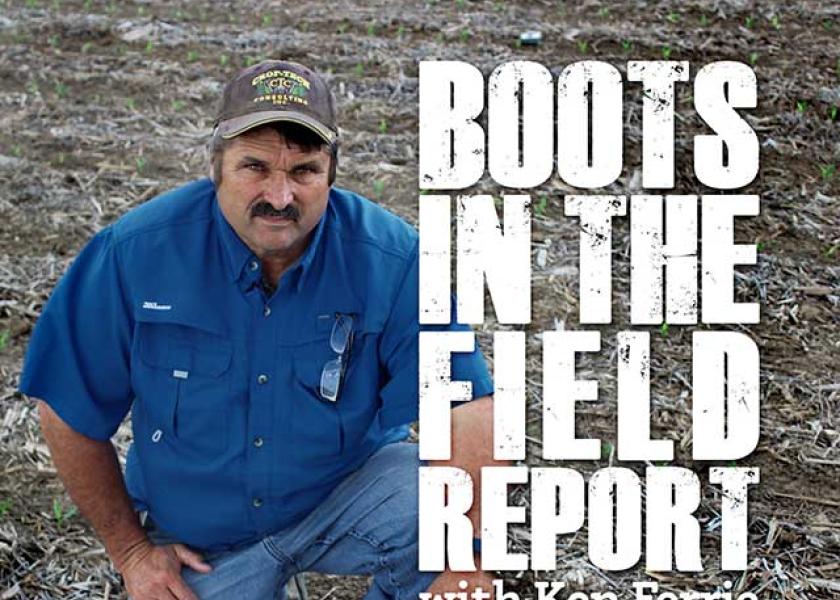Ferrie: Don’t Get Dinged By Fallow Syndrome This Spring

Which direction will you go this spring—will you plant more corn or plant more soybeans?
Ken Ferrie says he likes the way his customers at CropTech Consulting, near Heyworth, Ill., answer that question: “Show me the money, and I’ll grow it.”
He says the option of what to grow in 2020 is wide open in many cases.
“A lot of you can hold your cards until spring to make a decision, if you want to watch this market, though taking advantage of early orders and prepay benefits could be tricky. Still, the opportunity to wait is there,” notes Ferrie, Farm Journal Field Agronomist.
Either way, keep in mind that you could have some fallow syndrome issues to deal with on any prevent plant acres. Ferrie explains that the problem occurs when soils go without any plant growth for a prolonged period, causing microbe populations to die off, which results in poor nutrient availability until the microbe levels are rebuilt.
“You guys farming bottom ground that occasionally gets drowned out and holds water all summer know all about fallow syndrome,” he says.
In those scenarios, corn plants often have purple coloring or streaking and are slow to take off, even once the weather warms up, ultimately resulting in lower yields. Soybeans can also be slow to crank up growth-wise, but do not seem to be hit as hard by fallow syndrome as corn.
Ferrie says the easiest way to address fallow syndrome is to put some starter on with the corn planter. “This starter will have to have phosphate in it,” he advises. “Straight-in starters just won’t do the trick.”
If you allowed weeds to get established in your prevent plant acres you won’t have to deal with fallow syndrome. The down side is that you are likely to end up dealing with ongoing weed issues in those fields for the next decade, Ferrie notes.
In those fields seeded to cover crops you won’t have to deal with fallow syndrome, but you will have to address a carbon penalty if you plant corn in them.
“If you grew oats as prevented plant last year, there will still be a bit of a carbon penalty this spring, though it will be considerably less than in a typical corn-on-corn carbon penalty,” Ferrie notes.
“If you baled or chopped the oats off, it will be more like soybean residue. If you planted cover crop this fall, just treat those acres like your normal cover crop acres,” he adds.
Ferrie says it’s been brought to his attention that some farmers are already having condition problems in their stored corn.
“There are reports of corn being caked up and hot spots already, as of December,” he says. “You may want to core those bins, so you don’t have any unwanted surprises next spring. But please, please be safe if you start probing that corn.”
Some farmers have told Ferrie that their field-bagged corn has picked up moisture. “The corn is testing two points wetter than when they put it into the bags. I have no idea why that is, but the bottom line is if you pushed moistures a little when going into the bags, you may want to pick them up first.”
Get Ferrie's full report here:
Field Makeover Improves Soil Health and Profits







